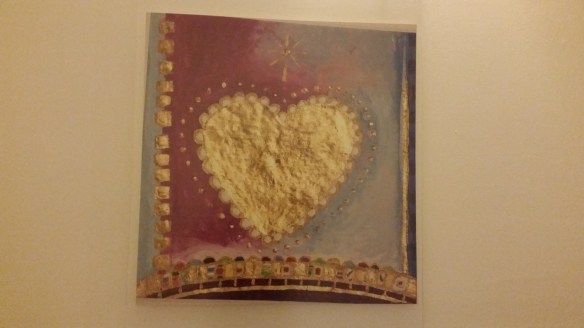 In St. Paul’s well known Letter to the Corinthians, Book 1, Chapter 13, he speaks of the nature of true charity. He lists ways to give and to each he adds “and have not true charity” (to paraphrase) “what I do is hollow and meaningless.” His description of true charity is the equivalent of a definition of unconditional love. The giving of love in unconditional ways means we do not expect anything back from our giving, nor do we make any judgments about those to whom we are giving.
In St. Paul’s well known Letter to the Corinthians, Book 1, Chapter 13, he speaks of the nature of true charity. He lists ways to give and to each he adds “and have not true charity” (to paraphrase) “what I do is hollow and meaningless.” His description of true charity is the equivalent of a definition of unconditional love. The giving of love in unconditional ways means we do not expect anything back from our giving, nor do we make any judgments about those to whom we are giving.
Doing this necessitates the undoing of a lot of old programming we have learned from the adults around us as we are growing up. It is natural to be judgmental. To one degree or another, we all are. The first lesson is to become aware of how and when we are, and the second is to stop the attitude before it reaches words or action. Recently I was given a wonderful example of a positive approach to true charity.
It is a sweet story, and I want to share it because It seems as though it provides such a good example of unconditional love. A dear friend who no longer lives close by called me recently to catch up on our mutual activities. As we chatted about our lives and what we had been doing, she confided in me that she had taken on an interesting Lenten discipline. For Lent this year she decided to be of service to the homeless population.
Several times a week or more she purchases food and toiletries with her own money and goes to where homeless people are gathered. She offers them a choice between food and toiletries, and she shares her purchases with those in need. She converses with them, interacting with them without judgment or feelings of pity. Some are grateful, others want both or more, and she very reasonably tells them that no, they must share. Sometimes a conversation ensues, and she participates in it peacefully and without preaching.
What she is doing is true charity: giving with unconditional love. This is often difficult for us to do because often when we give we expect something back even if only thanks. We may also put parameters on our giving: “if I do this for you, you must do this for me,” the “this” being anything from cleaning up or attending a service, to giving up something they may wish to keep doing. This kind of giving is not true charity. It is a kind of manipulation or at least an attempt to manipulate.
We learn bribery as small children. Our parents hold out a treat in order to get us to do something, and it engenders an attitude that we may keep as adults. “If you do this for me, I will do that for you,” is example. When we want something from someone it is all too easy to act thus. Giving without wanting anything back, and even more, interacting with those who are often shunned and despised for their behavior, is true charity. It warmed my heart to hear what she was doing, and I told her so.
If you haven’t discovered my new book: Up to my Neck in Lemons, check it out on Amazon. It includes articles, poems and lemon recipes too. You can purchase an autographed copy from me at P.O. Box 171, North Grafton MA for $15. Postage and handling included.

 My parents taught me much by their example. My father served in many capacities as a volunteer. He was generous with his time, talents and energy. He read for a radio station that served the blind; for many years he held the position of treasurer for a non-profit orchestra; and he helped out in various capacities at the church to which he belonged.
My parents taught me much by their example. My father served in many capacities as a volunteer. He was generous with his time, talents and energy. He read for a radio station that served the blind; for many years he held the position of treasurer for a non-profit orchestra; and he helped out in various capacities at the church to which he belonged.
 Very young children share quite naturally. Who hasn’t been the recipient of a toddler’s offering of a cookie or a treasured toy? Later, children become more self-centered, and parents have to teach them to share. Then we outgrow our parents’ teaching and begin to form our own ways of behavior. At this point we may often emulate peers who may or may not be good examples of heartfelt behavior. Some, like me, inherit critical attitudes from parents or teachers, and so unwittingly continue them. This can shrink the heart.
Very young children share quite naturally. Who hasn’t been the recipient of a toddler’s offering of a cookie or a treasured toy? Later, children become more self-centered, and parents have to teach them to share. Then we outgrow our parents’ teaching and begin to form our own ways of behavior. At this point we may often emulate peers who may or may not be good examples of heartfelt behavior. Some, like me, inherit critical attitudes from parents or teachers, and so unwittingly continue them. This can shrink the heart.